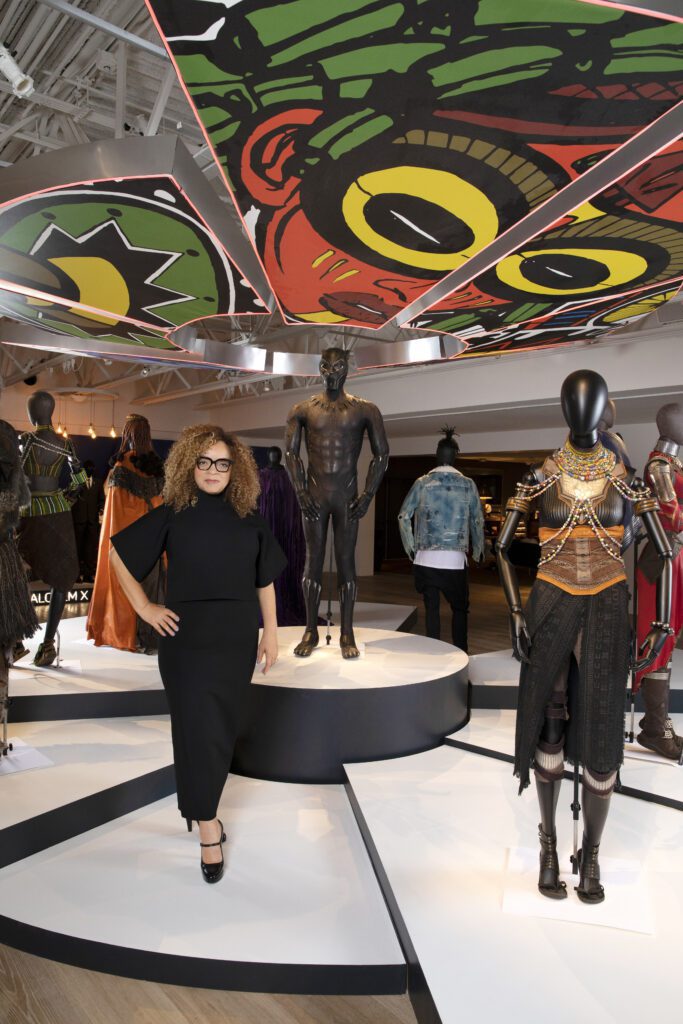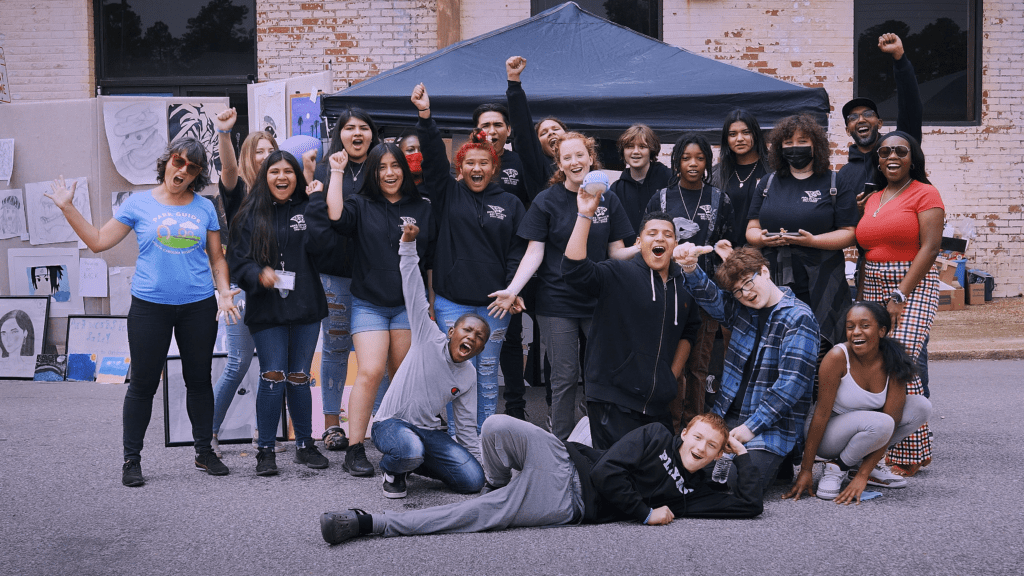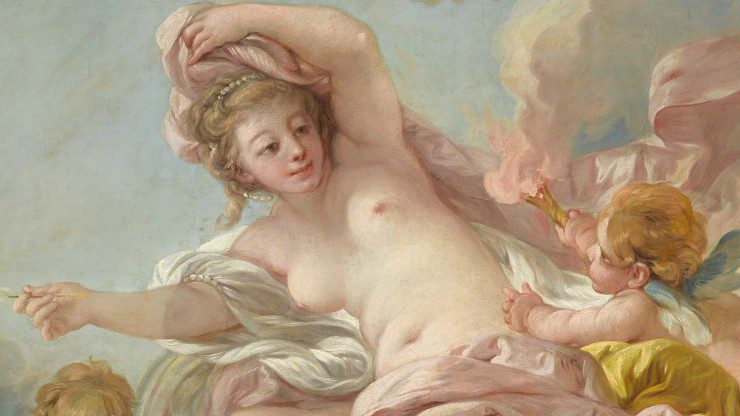Opening at the NCMA on April 1, a special exhibition celebrating the imagination of costume designer Ruth E. Carter showcases the artist’s passion for creating original, magical garments that have defined generations. Carter won Academy Awards for Black Panther and, this weekend, for Black Panther: Wakanda Forever. She has made history as the first African American to win in the Costume Design category and the first Black woman to win more than one Oscar. “Marvel may have created the first Black superhero,” she has said, “but through costume design, we made him an African king.”
The movies Ruth E. Carter has designed costumes for span centuries, and her body of work boasts a narrative that collectively tells the story of African Americans. It’s a journey that can be traced from the generational chronicle of Roots to the 19th-century slave revolt in Amistad, from the Civil Rights era depicted in Malcolm X and Selma to the meditations of The Butler. Her costumes reflect the cultural impact of the Motown sound in Sparkle, the experience of fighting the power in 1980s Brooklyn in Do the Right Thing, and the struggles of a superhero coming to terms with his kingdom’s legacy in Black Panther. Overall, Carter’s impact as an artist lies in her ability to bridge generations of viewers through her sartorial translations of race, politics, and culture for the big screen.
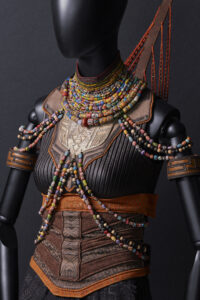

Through her deep understanding of character, combined with her nuanced use of color and texture, Carter has helped style the Afrofuturism movement for over 40 years. Afrofuturism is a cultural aesthetic that combines science fiction, history, and fantasy to explore the Black experience and connect those from the African diaspora with their lost ancestry. The philosophy is also a global reclamation of power, especially as it pertains to heritage, where marginalized communities engage narratives either against or without oppressive cultural and political structures.
“Creativity is the ability to be daring … to be self-expressive and to be fearless.”
—Ruth E. Carter
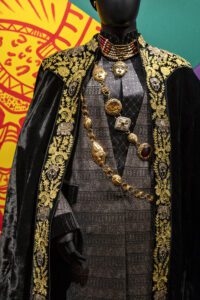
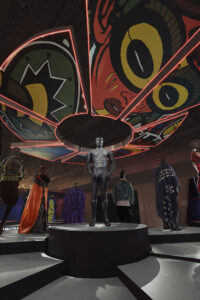
Carter defines Afrofuturism for herself as “using technology and intertwining it with imagination, self-expression, and an entrepreneurial spirit, promoting a philosophy for Black Americans, Africans, and Indigenous people to believe and create without the limiting construct of slavery and colonialism.” Inspired by African masquerade and ceremonial wear, Carter fuses traditional and contemporary by incorporating technology to deliver fashion and function. This has cemented her as one of the preeminent voices and experts on Black aesthetics.
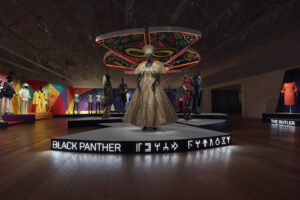

Ruth E. Carter: Afrofuturism in Costume Design
Academy Award–winner in Costume Design, Ruth E. Carter has helped bring characters to life in acclaimed Hollywood blockbusters. The NCMA celebrates the magic of her imagination.
Innovative AIM Program Reaches Thousands
Thinking outside the lines, NCMA outreach programmers connect local artists in rural communities with local students excited to discover the artist within.
Love in the Galleries
This Valentine’s Day we invite you to follow Cupid’s arrow through West Building to discover some amorous works in the NCMA’s collection.

